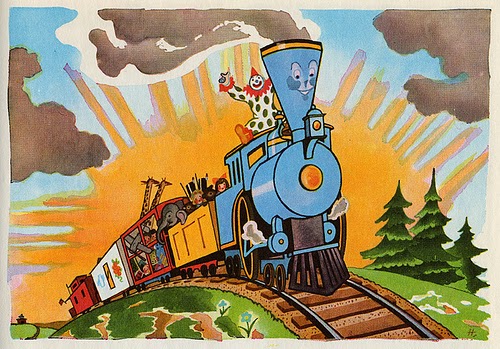TBI: What to Expect on the Recovery Journey that Follows
1.4 million people experience a TBI in the United States each year. When a loved one has been through a TBI, many aspects of their life will not be the same. After the hospital stay is over, there is often little to no guidance given to caregivers about how life will be different now that a loved one has experienced a TBI. Here we'll break down what exactly a TBI is, what can be expected through the course of treatment for an individual with TBI, and give additional resources that can be used when needed.




What is a TBI?
TBI stands for traumatic brain injury. A TBI is any abrupt external force that hits the head and causes either temporary or permanent problems. The external force can either be an object that was moving, such as a baseball, tool, or bullet, or the force can be a moving head that hits an object that is not moving (such as slamming the head onto a dashboard in a car accident, or falling and hitting the head on a floor or bathtub.) Temporary or permanent problems may be physical (involving the body), cognitive (involving the mind), or emotional/behavioral (involving feelings and attitudes.)
Some risk factors for experiencing a TBI including being young (younger than 4 years, or between 15-19 years), being elderly (75+ years), being male, abusing substances, and being involved in activities or professions where injury is likely (such as military or security professions.) The two main types of TBI include open head injury, where the skull is broken-open, and closed head injury, where the skull remains intact.

Course of Treatment for TBI
Immediately following a TBI, your loved one will recover in a hospital. If the injury was severe enough, they will first be in a coma, or a stage of unconsciousness while the body heals. Your loved one may or may not then fall into a vegetative state of recovery, where they will appear to be out of their coma (have their eyes open, move their body unexpectedly) but they will still be unable to interact with you or anyone else around them. Post-Traumatic Amnesia (PTA) will then be experienced. In this stage, your loved one will be very confused and not understand where they're at, what has happened, or why they're in the hospital. This phase is temporary and includes symptoms such as being impulsive, agitated, and not being able to say or understand words or sentences. After the individual has emerged from the PTA stage (which they will mostly likely not remember), then therapy can begin.
Speech therapy for an individual with a TBI varies depending on how severe the person's TBI is, how much the TBI affects their level of functioning, what stage of recovery the person is in, and what the overall outlook of their injury is. The goal of therapy is to allow individuals with TBI to function as independently as possible at a level that will set them up for success in the future, outside of treatment. Initial therapy will focus on improving very basic levels of functioning, and as therapy progresses, more advanced tasks and skills will be addressed. Treatment for TBI will occur through the following stages:
- Neurofatigue: After an individual has been through a TBI, they will experience neurofatigue. At this stage, a therapist will educate the patient about the causes sna dsigns of neurofatigue, and give strategies on how to deal with it, such as scheduling breaks, breaking large tasks into smaller sections, making contingency plans, and making sure that sensory stimulation is kept at a minimum.
- Control: The control stage of treatment focuses on the individual's disinhibition and adynamia. Disinhibition is when an individual's "filter" is removed and they feel and talk about things that are not socially appropriate. Adynamia is the opposite, and is when an individual cannot feel emotions. Treatment in this stage involves identifying the individual's triggers, using strategies to cool-down, implementing pause times and moments of reflection, and setting alarms or timers.
- Attention/Concentration: TBI can make it extremely hard to focus. Strategies taught at this stage include taking notes, controlling distractions, using finger scanning or line-guides while reading, and identifying an individual's specific distractiors.
- Information Processing: A person's ability to understand information and respond to it can be affected by a TBI. At this stage in therapy, an individual will be instructed to summarize main ideas and key points, verify information, ask those around them to slow down or repeat what they have said, and focus on accuracy over speed.
- Memory: Therapy for improving memory involves assessing what skills will be most useful for the individual's daily life and coming up with strategies that address these skills. (For example, if the individual deals with money often, memory activities will involve money calculations. If the person likes to cook, following a recipe will be an activity done in therapy.)
- Executive Functioning: Executive functioning is the highest skill addressed during therapy and involves improving reasoning, problem solving, and other tasks. Therapy at this step may include working backwards, making lists, searching for patterns, taking notes, and using strategies such as SODA (state problem, options, decide, analyze.)

Additional Resources
Here you can find additional resources that may be of value to you now that you are the caregiver or loved-one of an individual with TBI.
- Traumatic Brain Injury-A comprehensive resource that aims to educate, research, advocate for and support individuals with TBI, their loved ones and the professionals that work with them. Find information on what a TBI is, it's causes and effects, symptoms of TBI, treatments for TBI, and a comprehensive video library.
- Speech Language Pathology - A TBI Patient Perspective - A TBI patient's treatment journey following his accident. An in-depth look at the therapy process in a Q & A style video format from an individual that has been through the process himself.
- Family Caregiver Alliance - TBI - List of useful services and resources for caregivers of individuals with TBI. Includes information on the National Disability Rights Network Protection and Advocacy for Individuals with Disabilities, and resources tailored specifically to caregivers of those with TBIs.
Caregiver burnout is an extremely common occurrence in those loved-ones that care regularly for individuals with TBI. Education on what to expect now that your family has been affected by a TBI, and education on resources that are now available to you can help make the process easier.



Thanks for sharing detailed information on what to expect on recovery journey. Here you can get more information on traumatic brain injury recovery stages.
ReplyDelete